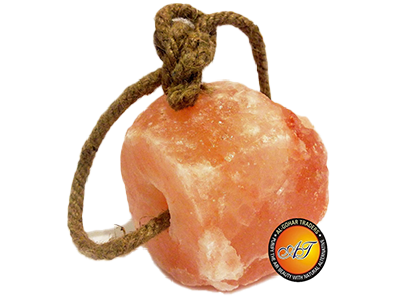Goats are hardy, curious animals known for their adventurous grazing habits. But beyond basic forage, goats require a range of minerals for optimal health and growth. Salt is one of the key nutrients they need. While salt may seem like a simple addition to their diet, it plays a critical role in their well-being. Providing salt in various forms, from mineral blocks to loose salt, helps maintain their health, improve digestion, and support growth.
Algohar World natural salt lamps that are believed to provide various benefits, combining both the aesthetic appeal and the potential health advantages associated with Himalayan salt lamps.
Why Goats Need Salt: Key Nutritional Benefits
Salt, or sodium chloride, is essential for goats just as it is for many other animals. Here’s why salt is an indispensable nutrient for goats:
Electrolyte Balance
Salt helps maintain the balance of electrolytes, which are critical for hydration and cellular function. Sodium and chloride work together to support the movement of nutrients and waste in and out of cells, helping goats stay hydrated and properly nourished.
Muscle and Nerve Function
Salt plays a major role in nerve signaling and muscle contractions. Without adequate salt, goats may experience muscle cramping, weakness, and a general lack of energy. Proper sodium levels are necessary for maintaining muscle coordination and response.
Improved Digestion and Feed Efficiency
Salt stimulates the production of saliva, which aids in digestion. Goats rely on rumination (chewing cud) to break down their food properly, and saliva production is critical in this process. Salt also helps regulate pH levels in the digestive system, making it easier for goats to absorb nutrients from their food.
Enhanced Appetite and Feed Consumption
Goats with an adequate salt intake tend to have healthier appetites and consume their feed more consistently. Salt often acts as an appetite stimulant, encouraging goats to eat more of their forage or feed, which is especially important for pregnant or lactating goats and growing kids.
Signs of Salt Deficiency in Goats
Salt deficiency in goats can lead to several health issues and behavioral changes. Some signs that may indicate a lack of salt include:
Licking Objects and Soil
Goats lacking salt may begin to lick rocks, soil, or even fences in search of minerals. This is a behavioral indication that they are instinctively trying to find salt in their environment.
Decreased Appetite
Salt deficiency can cause goats to lose their appetite, leading to weight loss and poor growth, especially in young or lactating goats that have higher nutritional demands.
Rough Coat and Poor Hair Quality
A lack of salt can impact the overall health of a goat’s coat. Goats may develop rough, dull fur if they aren’t getting enough salt and other essential minerals.
Note: goat licking salt are prone to imbalances in minerals like copper and zinc, which are often present in salt mixes designed for livestock. Regular salt intake helps keep these essential nutrients in balance.
Weakness and Lack of Energy
Salt deficiency can lead to muscle weakness, lethargy, and lack of energy, as the body struggles to maintain proper muscle and nerve function.
Types of Salt for Goats
Salt can be provided in several forms, each with specific benefits. Here’s an overview of the common types of salt for goats:
Mineral Blocks
Mineral blocks are a convenient option for goats. These blocks often contain salt as well as other minerals, like calcium, magnesium, and potassium, that goats need. Mineral blocks are typically placed in goat enclosures, allowing goats to lick them as they desire.
Loose Salt
Loose salt, often provided in a separate feeder, allows goats to consume as much salt as they need. Loose salt is often preferred over mineral blocks because goats can access it more easily and regulate their intake.
Salt Licks
Salt licks, typically made from natural rock salt, are another option. These licks provide a more natural source of salt, allowing goats to consume sodium chloride in its raw form.
Salt with Added Trace Minerals
Trace minerals like copper, zinc, and selenium are often included in salt products designed for livestock. Goats benefit from these trace minerals, which support bone health, immune function, and reproduction.
Salt Consumption Guidelines for Goats
It’s important to monitor how much salt your goats are consuming, as both insufficient and excessive intake can lead to health issues. Here are some guidelines:
Providing Salt Ad Libitum
Allowing goats to have free-choice access to salt means they can consume salt as needed. Goats are generally good at self-regulating their salt intake, so providing loose salt or mineral blocks can help them get the right amount.
Conclusion
Salt is an essential nutrient that supports various aspects of goat health, from hydration to muscle function and immune support. By providing free-choice access to salt in a way that suits their dietary needs, you ensure your goats enjoy healthier lives and greater productivity. Whether using loose salt, mineral blocks, or salt licks, maintaining consistent and safe access to salt for your goats is key to their overall well-being.
